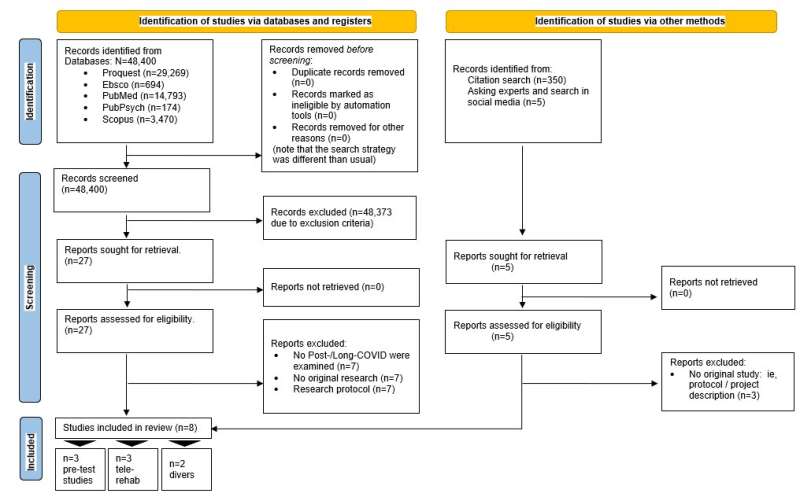This article has been reviewed according to Science X's editorial process and policies. Editors have highlighted the following attributes while ensuring the content's credibility:
fact-checked
peer-reviewed publication
proofread
Post- and long-COVID syndrome: How digital interventions can help

Psychological and physical exercises digitally instructed can improve the health of post- and long-COVID patients. These findings were confirmed in a current meta-analysis by a team led by Sonia Lippke, professor of health psychology and behavioral medicine at Constructor University in Bremen. The results were recently published in the Journal of Medical Internet Research.
Services for those affected by post- and long-COVID are limited: lengthy waiting periods are common and make it even harder to get support. "E-health," the use of information and communication technologies such as smartphones, tablets or PCs, can help to close treatment gaps and relieve the strain on the healthcare system in general. "Digital medicine offers great potential, especially for people who live in rural areas or with limited mobility," said Lippke. "It can help improve their functionality."
For people with long-COVID, symptoms occur over a period of four weeks after infection, with post-COVID, symptoms maintain after three months. They include persistent fatigue, breathing difficulties, concentration problems and depressive moods. Here, digitized interventions provide support with individualized therapy offerings, ideally accompanied by healthcare professionals. These can include exercise programs, relaxation and breathing exercises, or even medical lectures and consultations.
However, the number of evidence-based studies on digital interventions is rather small. Sonia Lippke's team found only eight original studies that met the inclusion criteria. "We need many more systematic studies of the effects," Lippke said. She is also conducting her own practical research of a better care concept for those affected: as part of the "ASAP" project (Assisted Immediate Augmented Post-/long-COVID Plan), led by the Dr. Becker Clinic Group and carried out in collaboration with Dr. Alina Dahmen, the aim is to find out optimal care approaches.
Sonia Lippke also explains how people can digitally be encouraged to eat healthier in the recently published book "Digital Health Interventions." It is edited by David Daniel Ebert and Harald Baumeister. Lippke describes various methods for improving nutritional behavior and promoting health and well-being.
More information: Robin Rinn et al, Digital Interventions for Treating Post-COVID or Long-COVID Symptoms: Scoping Review, Journal of Medical Internet Research (2023). DOI: 10.2196/45711




















